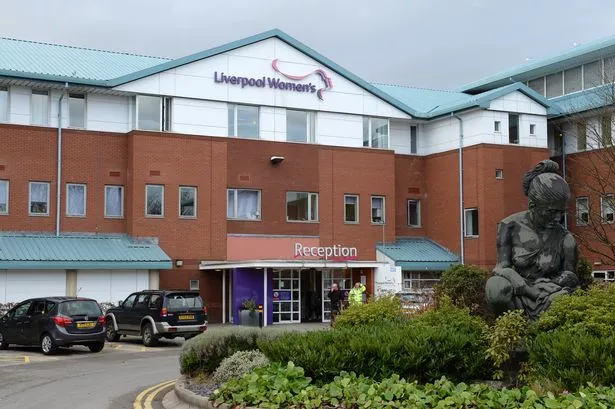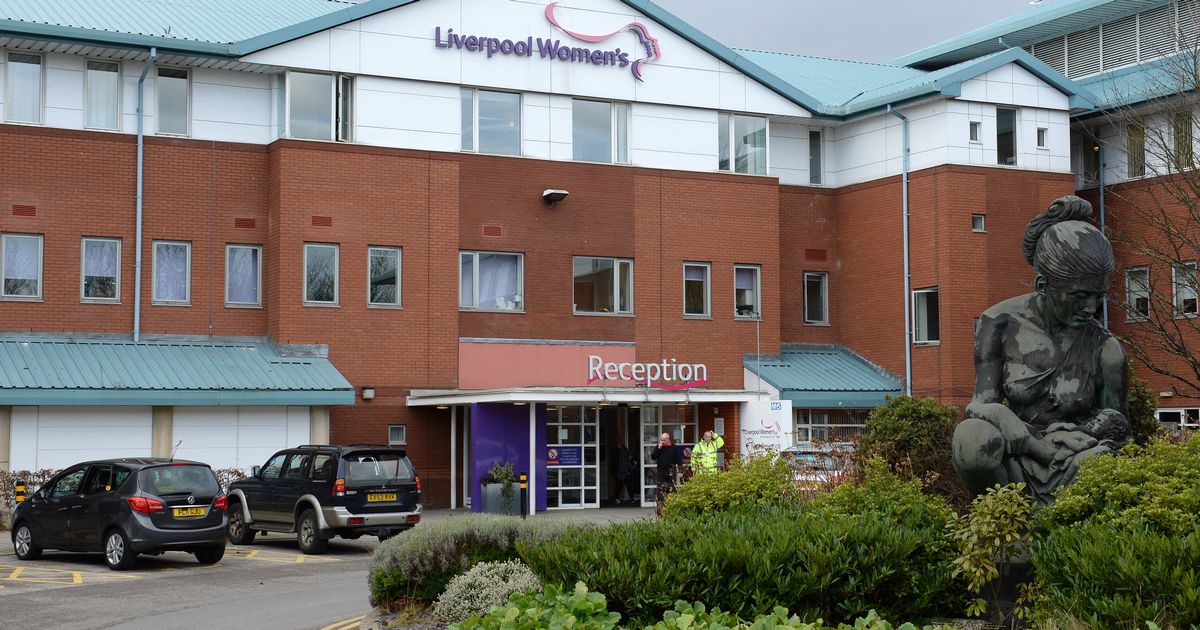NHS bosses proposing major cutbacks in number of paid-for fertility cycles families can access IVF treatment for people in Merseyside is provided by The Hewitt Fertility Centre at Liverpool Women’s Hospital(Image: Julian Hamilton/Daily Mirror)
IVF treatment for people in Merseyside is provided by The Hewitt Fertility Centre at Liverpool Women’s Hospital(Image: Julian Hamilton/Daily Mirror)
There is deep concern in communities across Merseyside at plans to slash the number of NHS-funded cycles of fertility treatment that people can access. In vitro fertilisation (IVF) is a type of fertility treatment that can help people who have difficulty getting pregnant. It involves an egg being fertilised by sperm outside of the body in a laboratory to create an embryo, which is then transferred into a uterus to achieve a pregnancy.
The NHS Cheshire and Merseyside Integrated Care Board (ICB) is proposing major changes to local fertility treatment policies, which it says are for both consistency but also for financial reasons.
Crucially, for everyone in Merseyside, this will mean cutting the number of funded opportunities for IVF treatment, either from three or two to just one across the board.
In its report on the proposals, the ICB says it currently has 10 separate policies covering NHS fertility treatments for people in Merseyside and Cheshire who are having problems getting pregnant. Because of the variations in these policies, it means people’s access to fertility treatments depends on where they live.
The board says its proposing a new single policy for the whole region, which it says would mean ‘everyone getting equal access to treatment’ – but crucially, it will also mean a cut to the number of IVF cycles that the NHS pays for.
The change that is understandably causing the most outrage and concern is around the number of funded cycles., with every area of Merseyside set to see a cut from either three or two cycles to just one.
Currently, around 734 people in Cheshire and Merseyside access NHS IVF each year. This figure is based on the number of first cycles that take place.
Treatment is provided by The Hewitt Fertility Centre at Liverpool Women’s Hospital, which is part of NHS University Hospitals of Liverpool Group, and has facilities based in both Cheshire and Merseyside.
At the moment, people living in different parts of Cheshire and Merseyside have different numbers of IVF cycles paid for by the NHS, depending on where they live.
For example, if you are 39 and younger and live in South Sefton, Southport, Formby, Knowsley or Halton, you currently have access to three funded cycles of IVF. In Liverpool, you have access to two – or three in exceptional cases. In St Helens or Wirral you can get two funded cycles, but in Cheshire East it is just one.
The report states: “We are proposing that in the new policy, everyone in Cheshire and Merseyside who is eligible for IVF would have one cycle paid for by the NHS.
“If the change went ahead, it would mean that the number of cycles of IVF paid for by the NHS would reduce for people aged up to 39 in all areas of Cheshire and Merseyside, except in Cheshire East, where it would stay the same as it is now.
“There would be no change for people aged between 40 and up to 42, as they are already offered one cycle in all of our areas. If the change went ahead, once they had received a first cycle, people would no longer be able to have any additional cycles funded by the NHS.”
Explaining the financial issues behind the proposals, the report adds: “Across the country, the NHS is facing a serious financial challenge. ICBs like NHS Cheshire and Merseyside are given a fixed amount of money by NHS England each year to spend on local health care.
“With demand for NHS services increasing, and the cost of providing care rising, we are facing some difficult decisions about how we spend this money.
“Unfortunately, this means we might no longer be able to fund some of the things that we have in the past, and that for some areas of treatment, such as IVF, we are looking at reducing the overall costs of this care, so that we can continue providing it.”
The report suggests that moving to one funded cycle across the region would save £1.3 million per year for NHS Cheshire and Merseyside.
The news has understandably caused real concern for people across the region hoping to access the services – and particularly for those who have already been agreed multiple cycles that fear they will now see those cycles slashed.
One woman who contacted the ECHO and asked not to be named, said: “This will cause a lot of financial hardship and heartache for those who are trying to start a family, so the NHS can save some money here and there.”
There is also concern about those people who have already been granted a certain number of rounds, who are worried this may now be cut back.
But the NHS proposals state that if the proposed changes happen, there would be no change for people who had already been told by the Hewitt Centre how many cycles they would be entitled to during their care, therefore, there would be no impact mid-treatment.
However, any future change would apply to people who had not yet started their care with the Hewitt Fertility Centre at the point a decision to change the policy was made.
Speaking about the proposals, Dr Fiona Lemmens, Deputy Medical Director for NHS Cheshire and Merseyside said: “The NHS is currently facing serious financial challenges, and this means we’re having to make some very difficult decisions about how we spend our local health budget.
“We know that access to fertility treatment is a sensitive issue, but we believe that moving to a single IVF cycle is the best way to ensure that we can continue to provide this treatment for our population.
“We have drafted the new policy based on what we feel balances local need and affordability, but before we finalise it, we are committed to listening to feedback from our communities.
“We want to encourage people to share their views by taking part in the public consultation, to tell us how these changes might affect them, and what they think might help to minimise any negative impact.”
The NHS board said that further information will be shared when a final decision is made, likely to be by the autumn. Until then existing policies will apply.
The consultation runs until July 15 2025 and can be accessed and responded to here.
